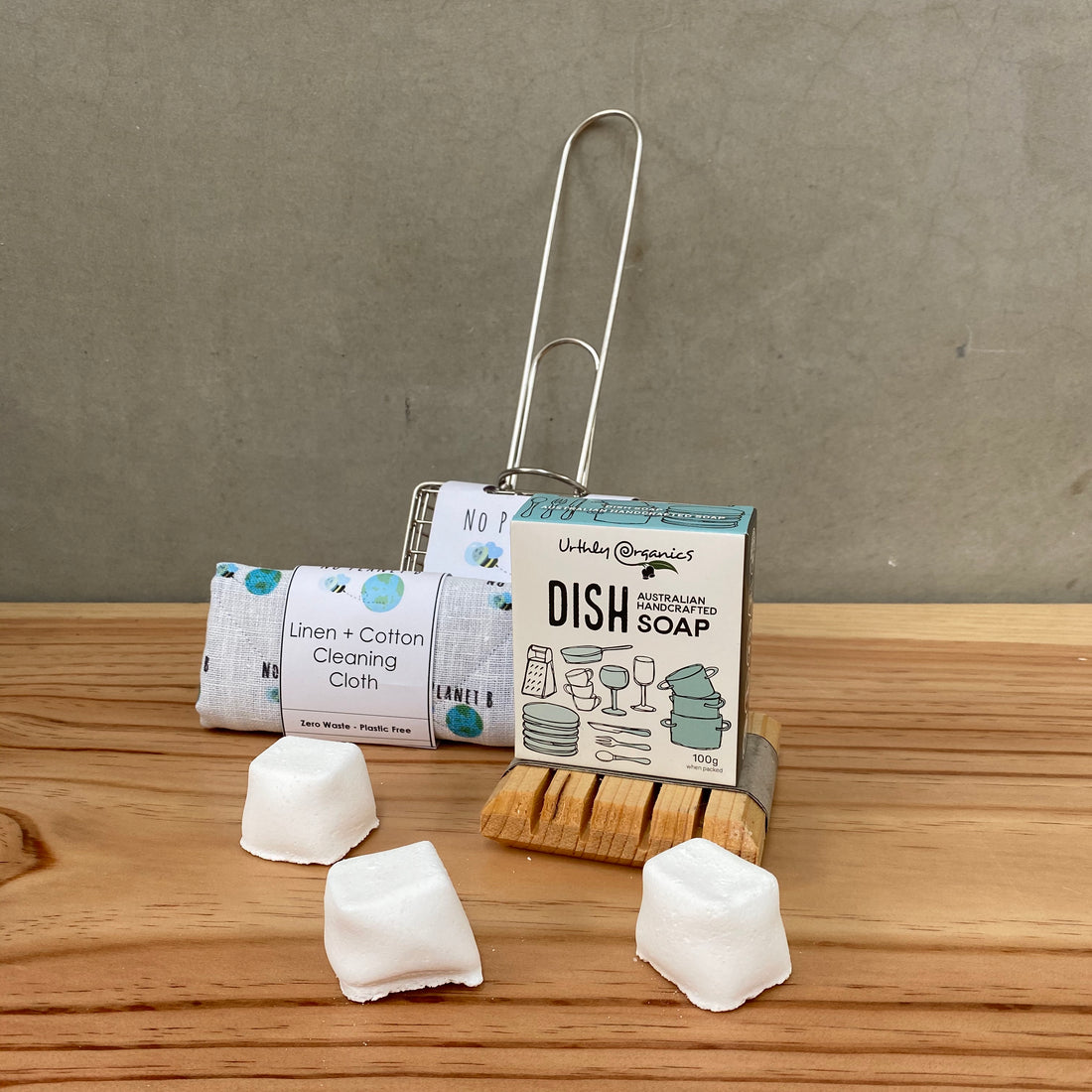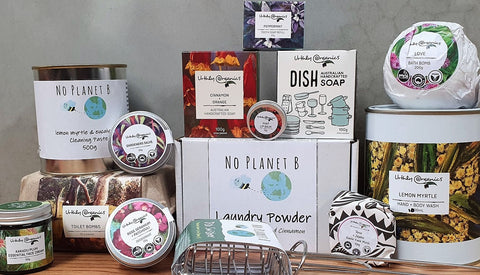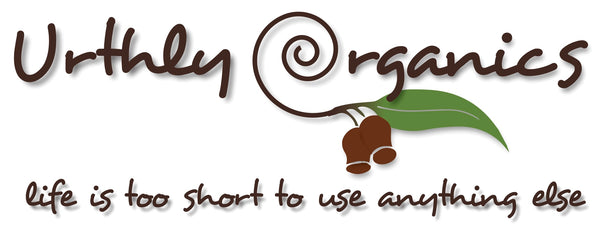
Starting Plastic-Free July: Using Urthly Organics to Reduce Your Waste
Share
Plastic-Free July: Using Urthly Organics to Reduce Your Waste
Plastic-free July is upon us. The initiative is a global movement that focuses on encouraging people to be a part of the solution to plastic pollution. With the changes in climate and the increase of microplastics in the environment, now more than ever we need to act to protect our environment, health, and our future.

At Urthly Organics, we are vocal about our commitment to the planet over profit. This includes reducing all single-use plastic from packaging and distribution materials. With our focus on reducing waste, Plastic-Free July is an exciting time of the year for increasing awareness on how others can follow suit.
While switching away from plastic sounds good in theory, the reality is a lot more difficult. Where do you start? What do you look out for? Is it expensive? How do I find alternatives to what I usually buy? These are all concerns that can arise. And with plastic such a common aspect of daily life, avoidance can be a confusing process.
To help start or improve your journey, we have put together 5 tips to help you cut out excess plastic, as well as suggest some UO alternatives to single-use products.

Start with What You Have
Before you start it’s about understanding concerns, available resources, and current practices towards your plastic consumption. By knowing how you use or dispose of plastic, you can work out a starting point, setting some goals. Maybe it’s starting in the school lunchboxes, or it’s about clearing out single-use cleaning products.
After determining a focus, look at your resources. Empty containers, bags, environmental knowledge, phone apps, reusable coffee cups, etc., can all be assistance when starting on a new single-use plastic-free journey. Also, look for what you could repurpose in your home to help achieve your goal. This can include old clothing to sew into produce bags or handmade masks.
Finally, look at where you place plastic waste. Do you take soft plastic to supermarket REDcycle bins? Are they sorted, separated, and recycled? Are they placed in general waste? This can also help work out small steps to begin, such as sorting waste.
Urthly Organics Alternative
Instead of: throwing away UO packaging
Use our refill service. Just send us empty packaging and we will reuse or recycle it.

Prepack your reusables
We have all been guilty of forgetting a bag, coffee cup, or metal straw when heading out. And in buying a new one, we contribute to yet another item we don’t necessarily need. To reduce this from occurring, it’s about preparedness.
Try leaving reusables in a section of your car or handbag. A picnic basket with produce bags, a metal straw, a keep-cup, metal cutlery, and some containers will keep everything together while ensuring you’re prepared for a plastic-free shop or meal.
And if you are someone that forgets to put things back, another option is to complete a switch method. Every time you take something out (such as a bag), you swap it with an empty item. This prevents leaving everything at home.
Urthly Organics Alternative
Instead of: purchasing a new soap pump each time.
Use: our Hand and Body Wash refill. They come in an aluminum reusable tin and can be poured into a soap pump.

Choose small independent stores
Shopping at a small business is one of the most beneficial things you can do to reduce your impact on the environment. You keep money in the local economy, reduce financial losses caused by COVID, your products potentially travel less, and you can deal with businesses more personally.
Ask your small businesses directly whether they have plastic-free options, or if you can bring containers. Many are more than happy to assist in working out ways to achieve your needs. Alternatively, search online for small businesses (the closer to you the better) for what you’re after and leaving an order note for no plastic packaging.
Urthly Organics Alternative
Instead of: purchasing personal care products like soap and skincare from the big supermarkets.
Use: Urthly Organics everyday soap, specialty soap, or other product. Zero-waste, higher quality, lower carbon footprint, handmade, and supporting a small business that supports the community.

Choose Bamboo
Bamboo alternatives to plastic and other waste products are a great starting point for reducing your impact on the environment. Bamboo is a versatile plant that can be made into high-quality clothing, toilet paper, containers, and more can be made from the material. This reduces the need for synthetics and plastic to be used, as well as reducing slow-growing trees from being cut down for paper.
However, when choosing bamboo it is important to be aware of the product makeup. A bamboo veneer can be common over plastics. Choose 100% bamboo-made products to reduce any hidden plastics from entering your household.
Urthly Organics Alternative
Instead of: plastic toothbrushes.
Use: a bamboo toothbrush. Our plastic-free bamboo toothbrushes can be composted or placed in the green waste bin.

Look for refills
Some stores, such as wholefoods, will offer refills. By choosing to refill, you aren’t adding additional plastics to your shop. You also can choose how much product you need, which can reduce the cost of your shop while removing any waste you may create from excess.
To grab a refill, use plastic-free containers where possible. This includes beeswax and vegan wax wraps cardboard boxes, produce bags, glass jars, and baskets.
Urthly Organics Alternative
Instead of: Plastic non-refillable packaged deodorant
Use: Urthly Organics deodorant. Packed in an aluminum tin, these can be refilled or used without the container at all.

